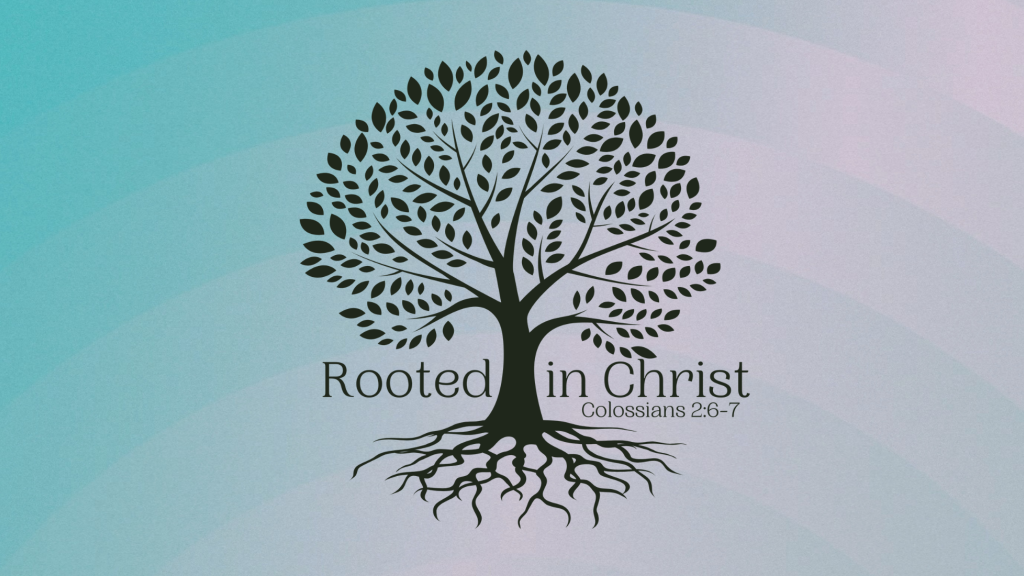How does the Bible help us understand and approach spiritual disciplines?
1 Timothy 4:6-16– Paul is telling his young apprentice to devote himself to training for godliness in His daily life. The picture that Paul is painting here is that the spiritual life and growth doesn’t just happen magically, but there is work and dedication, and determination involved in the process. There is an outward training that goes along with what God is doing internally.
1 Corinthians 9:24-27- Paul uses an athletics metaphor to explain something that the Corinthians might not understand in terms that they do understand. All runners run, but to win a prize one must discipline himself and train. Someone doesn’t go from a life as a couch potato to winning an Olympic Gold Medal. A lot of time and energy and training go into that moment. It is fascinating that part of this spiritual training that Paul is so concerned with is not just with his soul but with his body.
Philippians 2:12-13- As Paul talks here about the life of faith it is not something that ends the day that we cross the line of faith, but instead all of life is lived out of that reality. But notice where God says the power and desire come from? God at work in us! God gives us the ability and desire to follow Him in our daily lives.
Philippians 3:12-16- Paul never had a sense that he had arrived or made it. For Paul, life was always the moving forward to what God was calling us to be and to do. This means letting go of what was in order that we might become that which God would have us to become.
2 Timothy 3:16-17- As we think about the idea of Spiritual Discipline, Paul uses these words to remind us the important role that Scripture plays in our discipleship. God’s Word isn’t just a book or a story. God’s Word is meant o teach, reprove, correct and train us for a life of godliness.
Matthew 6:5-6, 16–18- As Jesus talks about the ideas of prayer and fasting, there is not a thought of these acts being optional but an ongoing part of the people’s relationship with God. At the same time, Jesus emphasizes that doing these things aren’t for show, but an act between people and God.
Joshua 1:8- As Joshua is being charged with the task of leading the people of Israel into the Promised Land, God calls Joshua to have God’s Word as a constant part of his life that it might take root in him and shape the way that he leads, thinks, speaks, and lives.
1 Thessalonians 5:16–18- As Paul gives his closing charge to the Thessalonian Christians, his desire is to paint a picture of the Christian life that is entrenched in three realities: rejoicing, prayer, and giving thanks. These aren’t a special activity that Paul is calling them to but something that transcends all of life, that shapes the entire Christian life.
Psalm 105:1–5- In these words, the Psalmist is painting a picture of a life of worship. It is a life that praises God, gives thanks to God, calls upon God, and shares who God is and all that He has done.
How have others helped us to understand the Spiritual Disciplines?
“We might think of spiritual disciplines more like calisthenics. Calisthenics– push-ups, jumping jacks, leg lifts, sit-ups, and pull-ups– help condition our bodies so we can better use our natural athletic gifts. In a similar way, spiritual disciplines condition our spiritual lives so we can better use our God-given spiritual gifts. Our churches are full of gifted people who want to serve. But they’re not in spiritual shape, which leaves them unprepared to serve well. We need to get past the stereotypical image of spiritual exercise for exercise’s sake and realize that these disciplines prepare and condition us to serve to our fullest potential.” (Bill Hull- The Complete Book of Discipleship, 195-196)
“Disciplined people can do what is called for at any given moment. They can do the right thing at the right time in the right way for the right reason… A disciplined follower of Jesus is someone who discerns when laughter, gentleness, silence, healing words, or prophetic indignation is called for, and offers it promptly, effectively, and lovingly.” (John Ortberg, The Life You Have Always Wanted)
“A discipline is any activity within our power that we engage in to enable us to do what we cannot do by direct effort… But spiritual disciplines are also spiritual disciplines. That is they are disciplines designed to help us be active and effective in the spiritual realm of our own heart, now spiritually alive by grace, in relation to God and his kingdom. They are designed to help us withdraw from total dependence on the merely human or natural (and in that precise sense to mortify the “flesh,” kill it off, let it die) and to depend also on the ultimate reality, which is God and his kingdom.” (Dallas Willard, The Divine Conspiracy 353)
“When we despair of gaining inner transformation through human powers of will and determination, we are open to a wonderful new realization: inner righteousness is a gift from God to be graciously received. The needed change within us is God’s work, not ours. The demand is for an inside job, and only God can work from the inside. We cannot attain or earn this righteousness of the kingdom of God; it is a grace that is given… The moment we grasp this breathtaking insight we are in danger of an error in the opposite direction. We are tempted to believe there is nothing we can do. If all human strivings end in moral bankruptcy (and having tried it, we know it is so), and if righteousness is a gracious gift from God (as the Bible clearly states), then is it no logical to conclude that we must wait for God to come and transform us? Strangely enough, the answer is no. The analysis is correct - human striving is insufficient and righteousness is a gift from God – but the conclusion is faulty. Happily there is something we can do. We do not need to be hung on the horns of the dilemma of either human works or idleness. God has given us the Disciplines of the spiritual life as a means of receiving his grace. The Disciplines allow us to place ourselves before God so that he can transform us.” (Richard Foster, Celebration of the Disciplines, 6-7)
What are the spiritual disciplines?
Bible Reading

Meditation

Scripture Memorization

Prayer

Worship

Evangelism

Service

Stewardship/Giving

Fasting

Silence

Solitude

Journaling

Submission

Frugality

Suffering

Repentance

Celebration/Joy

Community/Fellowship

What is true of spiritual disciplines?
- Spiritual disciplines develop habits of the heart– Practicing the spiritual disciplines doesn’t accentuate our strengths, it addresses our weaknesses. Spiritual disciplines seek to get to the heart and prepare the heart for the work of God.
- Spiritual disciplines are tools– The value of disciplines is not found in and of themselves. There is no virtue in spiritual exercise without a reason. The aim and substance of following Jesus shouldn't be about prayer, Bible study, or meditation. These tools simply serve the greater purpose of knowing God. They help us develop intimacy with God and fitness for serving.
- Spiritual disciplines work indirectly– Spiritual exercise sets into motion positive events that strengthen and transform our character. These exercises, somehow through the work of the Spirit, transform our mind and train us for the life God is calling us to live.
- Training leads to godliness– This is what Paul was talking about in 1 Timothy 4 when he said, “train yourself to be godly”. The goal of the training is to be conformed by the Spirit into the image of Christ.
- Practice creates the trained state– We practice so that skill and knowledge might become second nature. Like the example of the pilot who landed the plane in the water in New York who did it without thinking about it. In this process, behaviors become habits. If a new habit is not acquired then any change is just temporary.
- Perseverance makes transformation a reality- The reality is that like any sort of discipline and training there will be times that the training gets difficult, painful, and wearisome. The antidote is keeping the vision in mind, staying at the discipline you believe will one day pay off. The call is more than just to try but to practice the spiritual disciplines.
- Spiritual disciplines change our perspective– We begin to think of training as not straining to make something happen, but instead to do what God desires and leave what happens up to Him. (Much of this material is adapted from The Complete Book of Discipleship by Bill Hull.)
What is not true of spiritual disciplines?
- Spiritual disciplines are not a barometer of spirituality– This is the idea of calisthenics. The true goal is to become like Jesus as we love God and others. If we can do this without spiritual disciplines that would be awesome, but the picture that Scripture paints is it is usually through these tools that God shapes us into the people He would have us to be. The goal of spiritual disciplines should never be to impress others or even God with how spiritual we are.
- Spiritual disciplines are not necessarily unpleasant- “Many of us got the impression somewhere that for an activity to count as a spiritual discipline, it must be something we would rather not do. However, if we are in training for a life characterized by joy, peace, and affection, we should assume that some of the practices are going to be downright enjoyable. Many of us need to discover ‘disciplines’ such as celebration that will regularly produce in us rivers of wonder and gratitude.” (Ortberg, The Life You’ve Always Wanted, 50)
- Spiritual disciplines are not a way to earn favor with God– Spiritual disciplines are not about trying to be good enough to merit God’s forgiveness and goodwill. They are not ways to get extra credit or to demonstrate to God how deeply we are committed to him. They exist for our sake, not God’s. They have value only insofar as they help us morph.” (50)
Where does the desire to do the spiritual disciplines come from?
The Spirit gives us the desire to be trained but desire alone doesn’t do the training.
Can spiritual disciplines be harmful or worthless?
In a word: yes. This is what we see in the Gospel with the Pharisees as we see people filling their lives with all sorts of “good” or “godly” activities in order to serve and worship God and yet Jesus tells them that they are what Isaiah talked about when he said, “this people honors me with their lips, but their heart is far from me; in vain do they worship me, teaching as doctrines the commandments of men.” Spiritual disciplines can consume us to the point where we are worshipping the activity instead of God or lead to false works righteousness.
The Christian Struggle with Moralism
Where do we turn when confronted with our sin?
Often times we first turn to ourselves and our own abilities. We are confronted with our sin and in our guilt and shame, we turn inward to try harder and do better. The trap that we fall into is the lie that we have the power to somehow make ourselves better while the only one who has the power to transform us is God. The focus of the Christian life is not about making ourselves better people but about the work of God in our lives to transform us through his grace and power into the people that He would have us to be. Two things must be made clear:
- “That no amount of spiritual effort on their part can ever relieve them of their burden of shame and guilt in the Christian life except Christ. That no amount of effort in spiritual formation or the doing of the spiritual disciplines can grow them or fix them.
- That, in fact, the Christian life is not fundamentally about being moral in itself or about being a good Christian boy or girl. It is not fundamentally about obedience to a set of principles or doing spiritual disciplines; in fact, spiritual disciplines do not grow us. It is not even about character formation or imitation of Christ as a model person ‘out there,’ whom I can look at and model external to my soul (as in the motto “What would Jesus Do?”).” (Coe, 56)
What is a true Christian understanding of Confession?
Instead of turning inward the invitation of the Gospel is to come to the foot of the cross in confession to receive forgiveness through what Christ has done for us. This is the invitation that John talks about in 1 John 1:5-10. It is then through the work of Christ that our sins are forgiven not because we have done anything to merit or earn that forgiveness.
What does it look like to live a life at the foot of the cross in dependence on Jesus?
The Christian life has its origin and power through the work of Jesus Christ on the cross on our behalf. Our walk with Christ should then flow forth from the power of God working in us and through us in response to the work of God on the cross not so that Christ did not have to die on the cross. “The true Christian life is more about Christ and less about our own effort (Coe, 57).”















